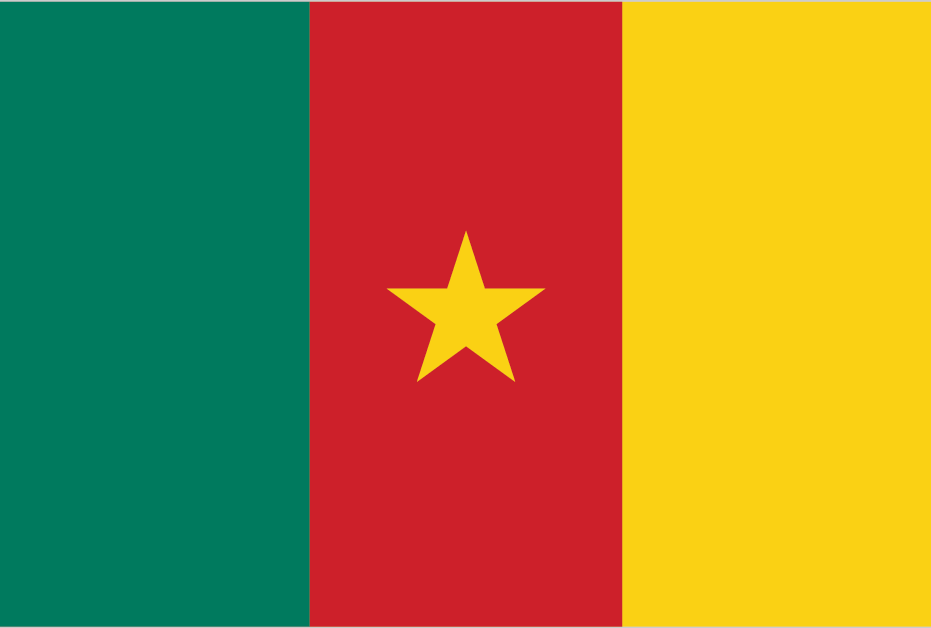
Sustainability Efforts
Country: Cameroon
Explore sustainability efforts in Cameroon. The United States Environmental Protection Agency (“EPA”) said it well when they state:
“Sustainability is based on a simple principle: Everything that we need for our survival and well-being depends, either directly or indirectly, on our natural environment. To pursue sustainability is to create and maintain the conditions under which humans and nature can exist in productive harmony to support present and future generations.”
About Cameroon
Cameroon, located in Central Africa, is known for its diverse landscapes, cultural heritage, and wildlife. It is home to the majestic Mount Cameroon, the highest peak in Central and West Africa, as well as lush rainforests, savannahs, and the beautiful coastline along the Gulf of Guinea. The country is culturally diverse, with over 200 ethnic groups, each contributing to its vibrant traditions, music, and cuisine. Wildlife enthusiasts can explore national parks like Waza and Korup, which are home to a variety of animal species, including elephants, gorillas, and chimpanzees. Despite its natural beauty, Cameroon faces challenges such as poverty and social inequality, but it continues to strive for development and progress. Sustainability efforts in Cameroon will enhance the country’s future.
Sustainability Efforts
Toggle each button below to “open” and “close” the presented data.

1. Poverty: Cameroon is actively working towards reducing poverty and improving the well-being of its population. The government has implemented poverty reduction programs and social safety nets to address the needs of vulnerable groups. However, poverty remains a significant challenge, with an estimated poverty rate of around 37% in 2014, according to the World Bank.

2. Hunger: Efforts to combat hunger and improve food security in Cameroon are ongoing. The government, in collaboration with international organizations and NGOs, has implemented initiatives to enhance agricultural productivity, promote sustainable farming practices, and strengthen social protection programs. Despite these efforts, food insecurity remains an issue, particularly in regions affected by conflicts and climate-related challenges.

3. Healthcare: Cameroon has made strides in improving healthcare services and access to quality healthcare facilities. The government has invested in healthcare infrastructure, increased the number of healthcare professionals, and implemented programs to address major health challenges. However, access to healthcare services still varies across different regions, with rural areas facing greater challenges.

4. Education: Education is a priority in Cameroon, and the government has implemented policies to improve access to quality education. Efforts have been made to increase school enrollment rates, improve the quality of teaching, and enhance educational infrastructure. However, challenges such as limited resources and regional disparities still exist, affecting the quality of education in some areas.

5. Gender Equality: Cameroon is working towards promoting gender equality and women's empowerment. The government has implemented policies and programs to eliminate gender-based discrimination, increase women's participation in decision-making processes, and improve access to education and healthcare for girls and women. However, gender disparities persist, particularly in rural areas.

6. Clean Water Sanitation: Cameroon is taking steps to improve access to clean water and sanitation facilities. The government, in collaboration with development partners, has implemented projects to provide safe drinking water, improve sanitation infrastructure, and promote hygiene practices. However, access to clean water and sanitation services remains a challenge, particularly in rural and remote areas.

7. Affordable Clean Energy: Cameroon is striving to increase access to affordable clean energy sources. The government has been promoting renewable energy technologies, such as solar and hydroelectric power, to reduce dependence on fossil fuels and improve energy efficiency. Efforts are underway to expand access to clean and sustainable energy, particularly in rural areas.

8. Economic Growth: Cameroon enjoys a strong and stable economy with a focus on sustainable growth. The government implements policies to support entrepreneurship, innovation, and foreign investment. The country's diversified economy and skilled workforce contribute to its economic prosperity.

9. Industry Innovation: Cameroon encourages industry innovation and invests in research and development. The country has a strong focus on green technologies and sustainable solutions. Cameroon's innovation-driven industries contribute to economic growth while promoting environmental sustainability.

10. Reduced Inequalities: Cameroon strives to reduce inequalities and promote social inclusion. The government implements social welfare programs, provides support to vulnerable groups, and actively combats discrimination. Efforts are made to create equal opportunities for all residents of Cameroon.

11. Sustainable Cities: Cameroon places a strong emphasis on sustainable urban development. The country prioritizes green infrastructure, promotes public transportation, and encourages energy-efficient buildings. Cameroon's cities are known for their livability, low pollution levels, and focus on quality of life.

12. Responsible Consumption and Production: Cameroon promotes responsible consumption and production practices. The country encourages recycling, waste reduction, and sustainable resource management. Cameroon actively supports circular economy initiatives and sustainable business practices.

13. Climate Action: Cameroon is taking actions to mitigate and adapt to climate change. The government has developed climate change policies, implemented reforestation programs, and promoted sustainable land use practices. Cameroon is also actively participating in international initiatives to combat climate change and reduce greenhouse gas emissions.

14. Aquatic Environment: Cameroon places great importance on preserving its aquatic environment. The country has implemented measures to protect its coastlines, marine ecosystems, and biodiversity. Cameroon actively engages in marine conservation efforts and sustainable fishing practices.

15. Natural Environment: Cameroon is committed to protecting its natural environment. Efforts focus on preserving forests, protecting wildlife habitats, and promoting biodiversity conservation. Cameroon's national parks and protected areas contribute to the preservation of its natural heritage.

16. Peace and Justice Institutions: Cameroon has a strong commitment to peace, justice, and human rights. The country upholds the rule of law, promotes democracy, and protects human rights domestically and internationally. Cameroon actively participates in international peacekeeping missions and supports conflict resolution efforts.

17. Partnerships for the Goals: Cameroon actively engages in partnerships with international organizations, other countries, and civil society to achieve the Sustainable Development Goals. Collaboration and cooperation are essential in addressing global challenges and achieving sustainable development. Cameroon contributes to global initiatives and shares its expertise to create a more sustainable and equitable world.



